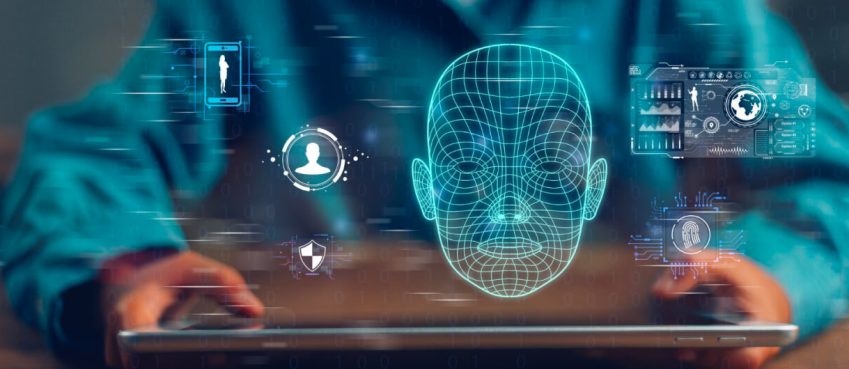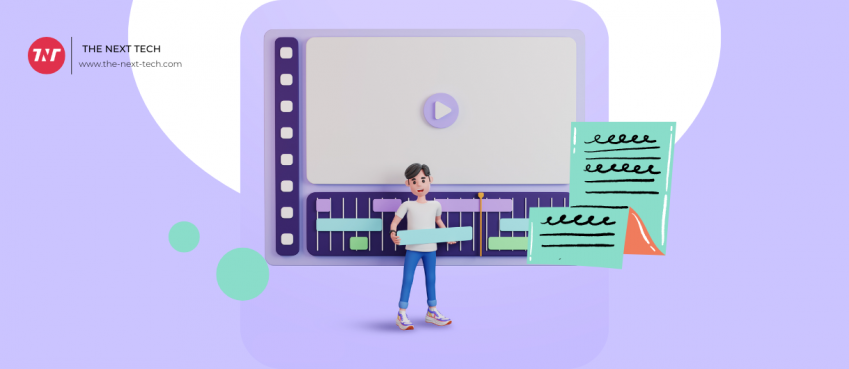
While other startups are finding them on the thin ice, the healthcare startups are sailing peacefully on the icebreaker!
In addition to the demand surge caused by COVID-19 situation, many other reasons including quick adaptability to the latest technology, human-centric approach, multiple revenue streams, and precisely engineered digital tools are making healthcare startups recession-proof.
Every other startup struggling hard to survive now and post-COVID-19 should learn lessons from healthcare startups. They should adopt new technologies, especially AI to automate many resource-sensitive business processes, reduce operating costs and administrative burdens which surely result in an ever-growing revenue graph.
In this blog, I will share 7 ways healthcare startups are leveraging AI technology. This learning will help startups find workable solutions to survive post-COVID-19.
But before discussing this, let’s first understand the difference between AI, Machine Learning and Deep Learning.
Difference between AI, Machine Learning and Deep Learning
- AI is nothing but the technology which facilitates developers and engineers to give a unique human-like ability to machines – act like a human! An AI-enabled system mainly works on the If-Then rules and makes decisions with the help of these rules. The most interesting thing about AI-enabled systems or machines is that it makes If-Then rules without any human interaction.
- Machine learning is a subset of AI. It is mainly used to process big data. It finds meaning out of complex big data and does prediction based on those historic data.
- Deep learning is a broader team of machine learning. If you want a machine to identify whether your uploaded image is of a cat or dog using machine learning techniques, you have to specify the attributes like skin colour, nose shape, tail length. But in deep learning, the system automatically defines the attributes and identifies who is in the image!
Meaning, AI is boundless but limited to machine learning and deep learning!
Now, when you know the difference between AI, machine learning and deep learning, let’s move ahead and discuss the ways healthcare startups are leveraging AI technologies.
How are healthcare startups leveraging AI in 2020?
-
Reducing errors in diagnosis
Even a small error costs big in the healthcare industry. It sometimes costs lives too. According to a report, medical errors accounted for 10% of all US deaths in 2015. Thus, there are zero scopes of error in the healthcare industry.
AI at rescue:
AI helps medical professionals to reduce human errors in a direct way and even in an indirect way. The direct way includes the use of sophisticated AI algorithms to predict and diagnose disease faster yet precisely.
An indirect way includes automation of resource-sensitive processes which reduces staff burden and increases their focus on crucial medical care and data.
A healthcare startup named PathAI uses machine learning techniques to help pathologists make an accurate cancer diagnosis.
-
Reducing dependency on manpower
Hiring, training and managing the workforce are costly affairs for almost all startups. They are in fact spending more than 50% of their revenue on just the workforce. On top of this, the workforce is notorious for making costly mistakes.
AI at rescue:
Using AI, many healthcare startups automate their important business processes. They are also achieving high accuracy with AI.
A USA-based healthcare startup named Buoy Health uses AI to allow users to check symptoms, diagnose and treat illness. AI eliminates guesswork out of healthcare.
In the absence of AI, Buoy Health would have hired, trained, and managed a huge workforce. Guess the money Buoy Health is saving with AI!
-
Predicting cancer
Time is very crucial in healthcare. If a doctor detects cancer during its early stage, he can save the patient very easily. But if he misses the time window, the outcome can be devastating. But, not even an experienced doctor can predict cancer.
AI at rescue
AI technique is very useful for prediction. AI’s sophisticated algorithms analyze the large data set and make rules. By comparing these rules to every new data of patients, it predicts the medical condition of the patients. This way, AI is helping doctors to detect even cancer during its early stage.
A healthcare startup named Freenome puts AI technology to good use to detect cancer before the situation gets worse.
-
Enhance patient(user) experience
Like many startups in other industries, healthcare startups are also struggling to enhance the patient (user) experience to increase the customer retention rate and revenue.
Long waiting queues, delayed healthcare service, ineffective care are a few major complaints of the patients which depict that their ‘user experience’ is highly affected.
AI at rescue
The easiest and game-changing use of AI technology is enhancing the user experience. AI technology understands the preference of the user and personalized his user experience. (Top social networking apps work on the same principle!)
An AI-based healthcare platform named Qventus enhances the patient experience by prioritizing the patient illness, reducing the waiting queue, and charting the fastest ambulance route.
-
Preventing data breach
The Healthcare industry relies highly on data and thus, it is considered one of the next big data frontiers. However, due to the crucial information of patients and centralized data storage (EHR), the healthcare industry has recently become an easy target of cybercriminals.
AI at rescue
AI is very purposeful when it comes to cybersecurity. Many healthcare startups are nowadays deploying AI-enabled security solutions, especially an IPS (Intrusion Prevention system.)
An AI-enabled IPS makes If-Then rules and compares it with every incoming package in the network of healthcare startups to predict the attack with attack type. It alerts the network admin to take precautionary steps to close the entry of the intruder before he enters the network to steal the information.
-
Business risks prediction
Risks always revolve around startups serving in any industry. Since startups cannot see the business risks until it pops up, they cannot draft and implement a risk management strategy which sometimes pushes them toward a dead end.
AI at rescue
AI analyzes the big data and predicts the top risks for startups. It predicts the financial risks, operational risks and even the clinical risks. Because of such predictions, startups can prepare the risk management strategy and execute it on time to eliminate the risks.
A healthcare startup named KenSci combines big data and AI to predict the risks for healthcare organizations. It takes data from existing sources into account to predict the risks.
Also read: How To Stream On Twitch? Twitch Streaming Guide For Streamers, Gamers, and Fans! (2024 Updated)
Summing up
The COVID-19 situation and the market fall demand all startups to reconsider their business plans, business models, and business methodology. During post-COVID-19, startups that continue making the same mistakes will have fewer chances to survive as the buyer behaviour has been completely changed due to COVID-19.
The AI which is no longer a luxurious choice can help startups avoid conventional mistakes which cost them huge. AI is one of the few technologies which satisfy more than one goal of the adopters. Other startups can also implement the ways healthcare startups are leveraging AI.
AI helps startups to
- Reduce human errors
- Reduce dependency on manpower
- Predict the user behaviour
- Predict the business risks
- Prevent the data breach
Top 10 News
-
01
[10 BEST] AI Influencer Generator Apps Trending Right Now
Monday March 17, 2025
-
02
The 10 Best Companies Providing Electric Fencing For Busines...
Tuesday March 11, 2025
-
03
Top 10 Social Security Fairness Act Benefits In 2025
Wednesday March 5, 2025
-
04
Top 10 AI Infrastructure Companies In The World
Tuesday February 11, 2025
-
05
What Are Top 10 Blood Thinners To Minimize Heart Disease?
Wednesday January 22, 2025
-
06
10 Top-Rated AI Hugging Video Generator (Turn Images Into Ki...
Monday December 23, 2024
-
07
10 Top-Rated Face Swap AI Tools (Swap Photo & Video Ins...
Friday December 20, 2024
-
08
10 Exciting iPhone 16 Features You Can Try Right Now
Tuesday November 19, 2024
-
09
10 Best Anatomy Apps For Physiologist Beginners
Tuesday November 12, 2024
-
10
Top 10 Websites And Apps Like Thumbtack
Tuesday November 5, 2024







